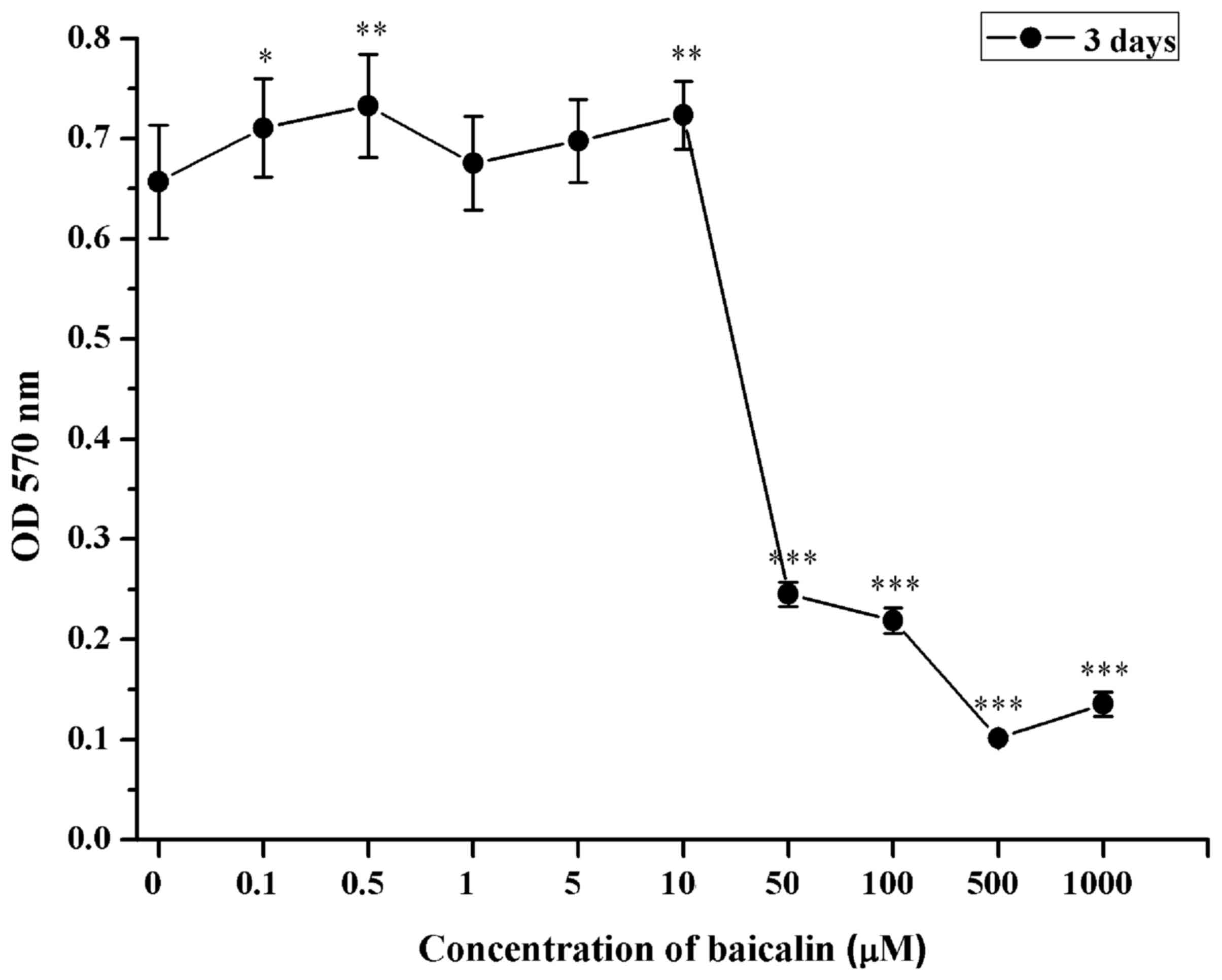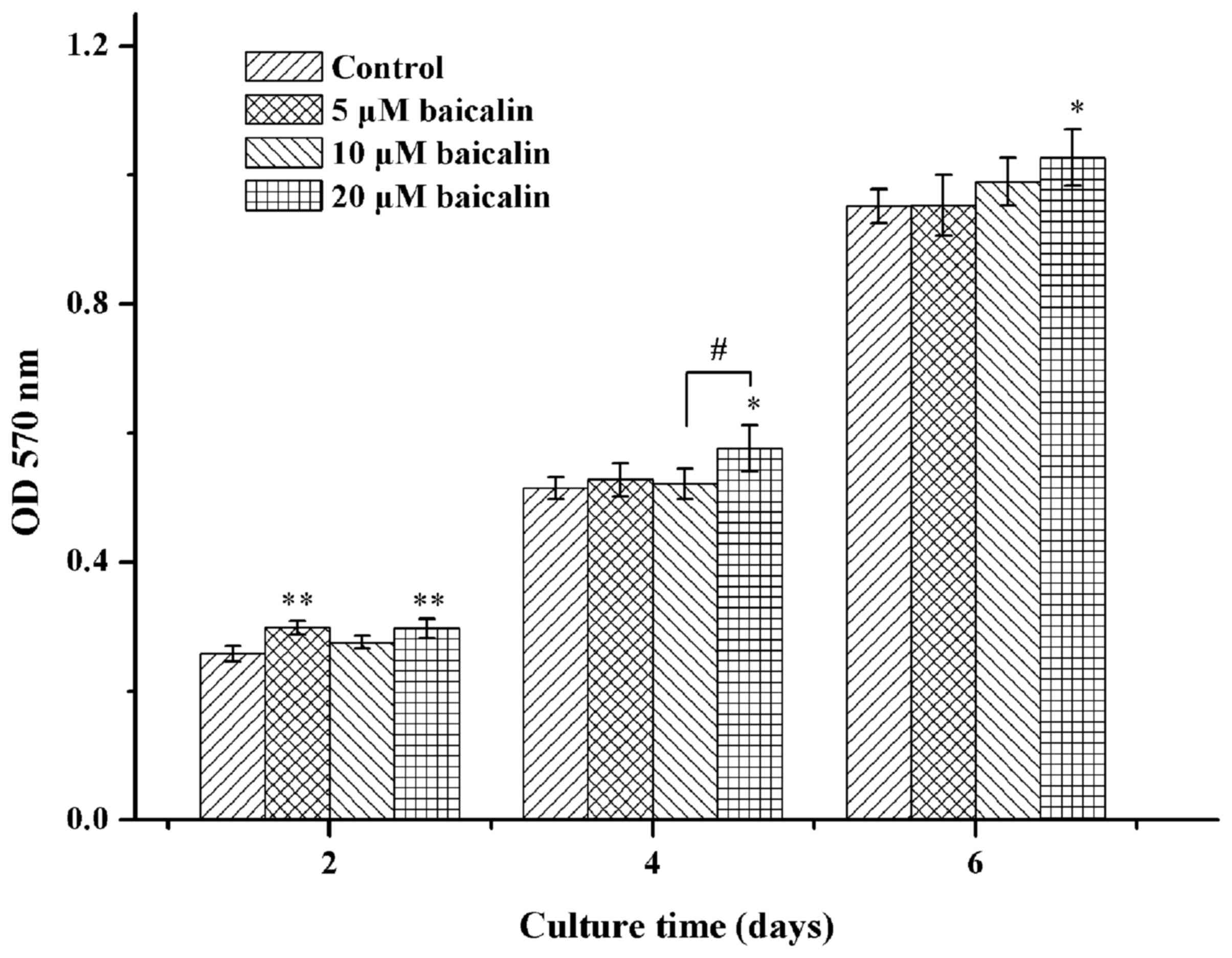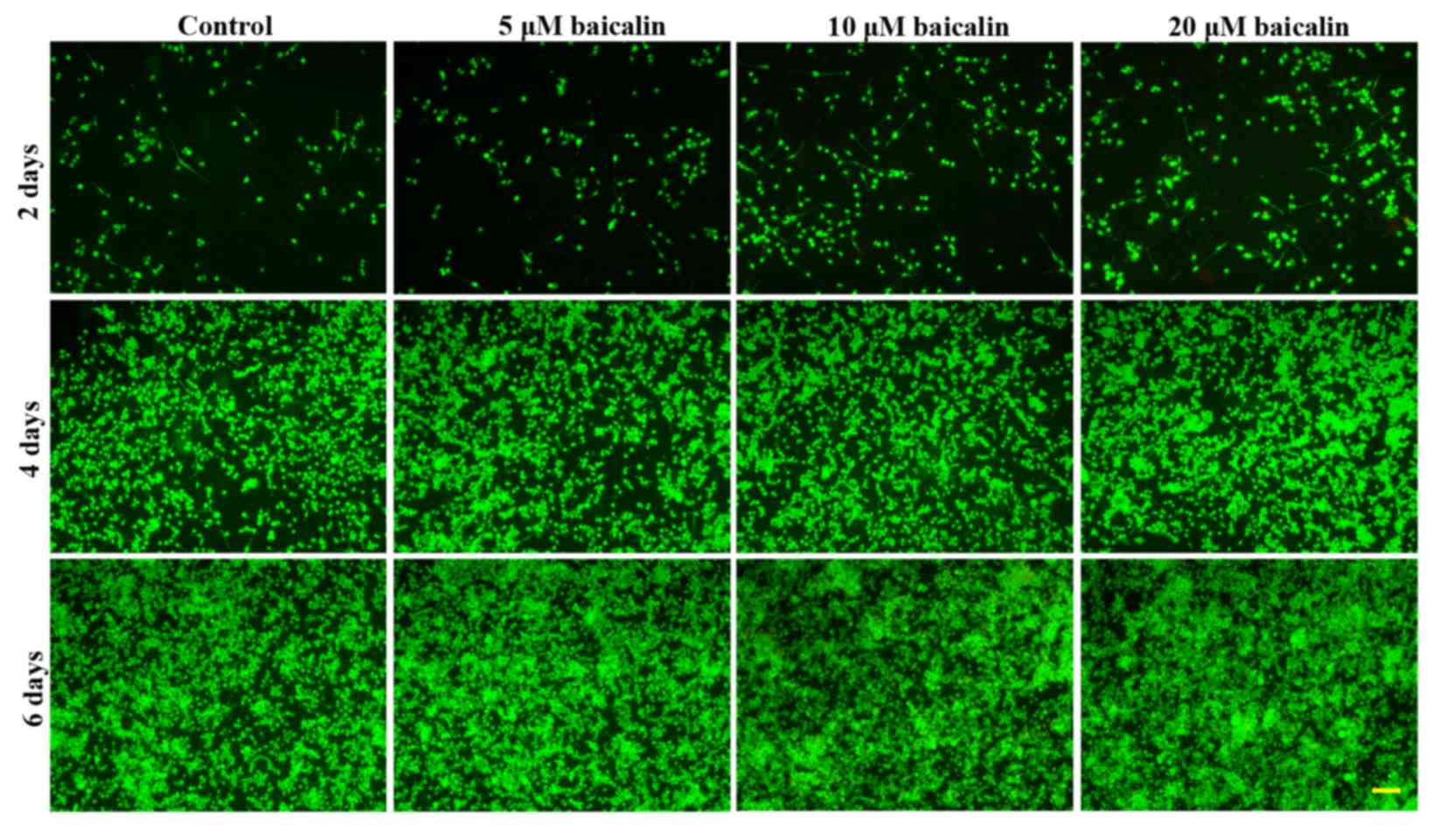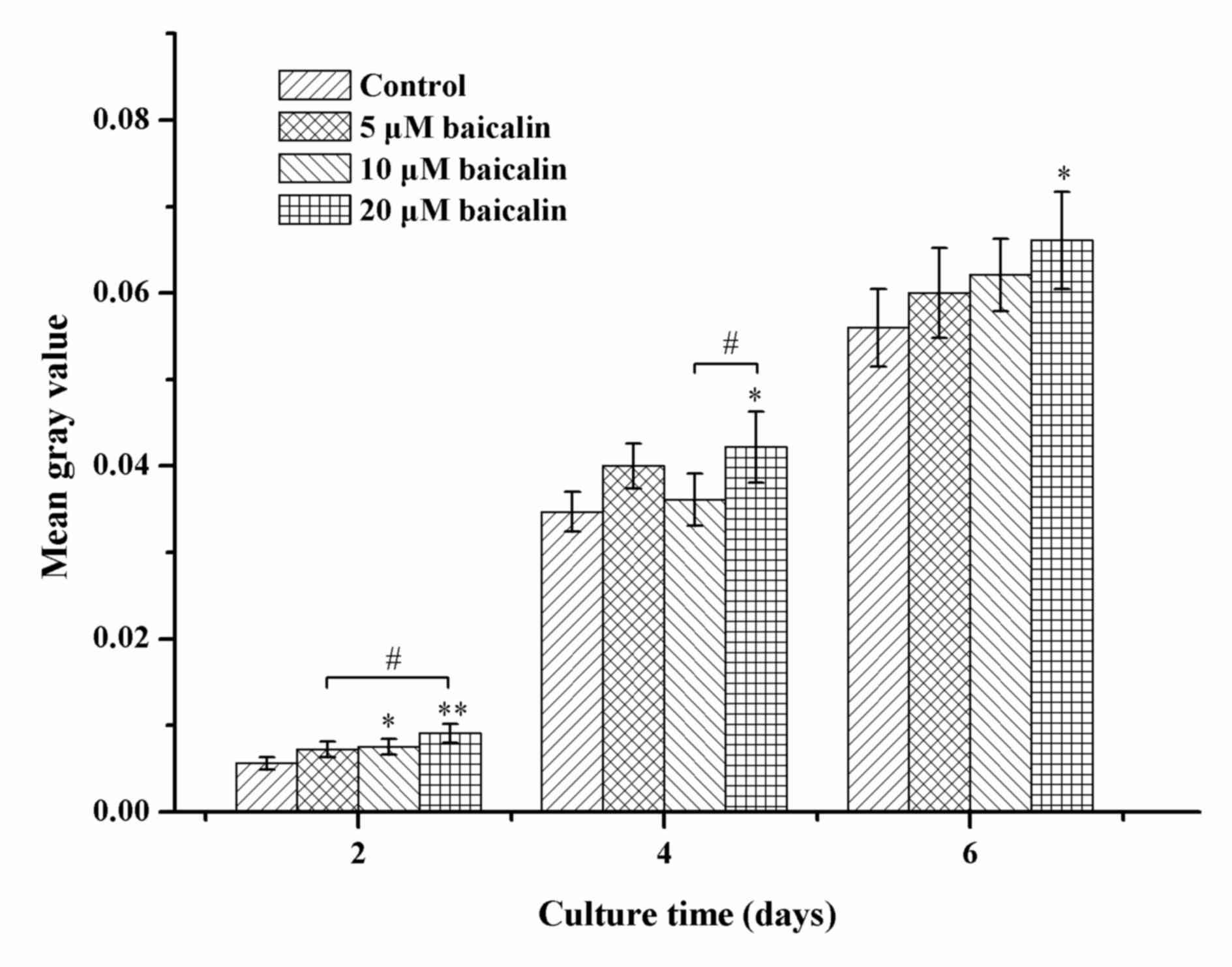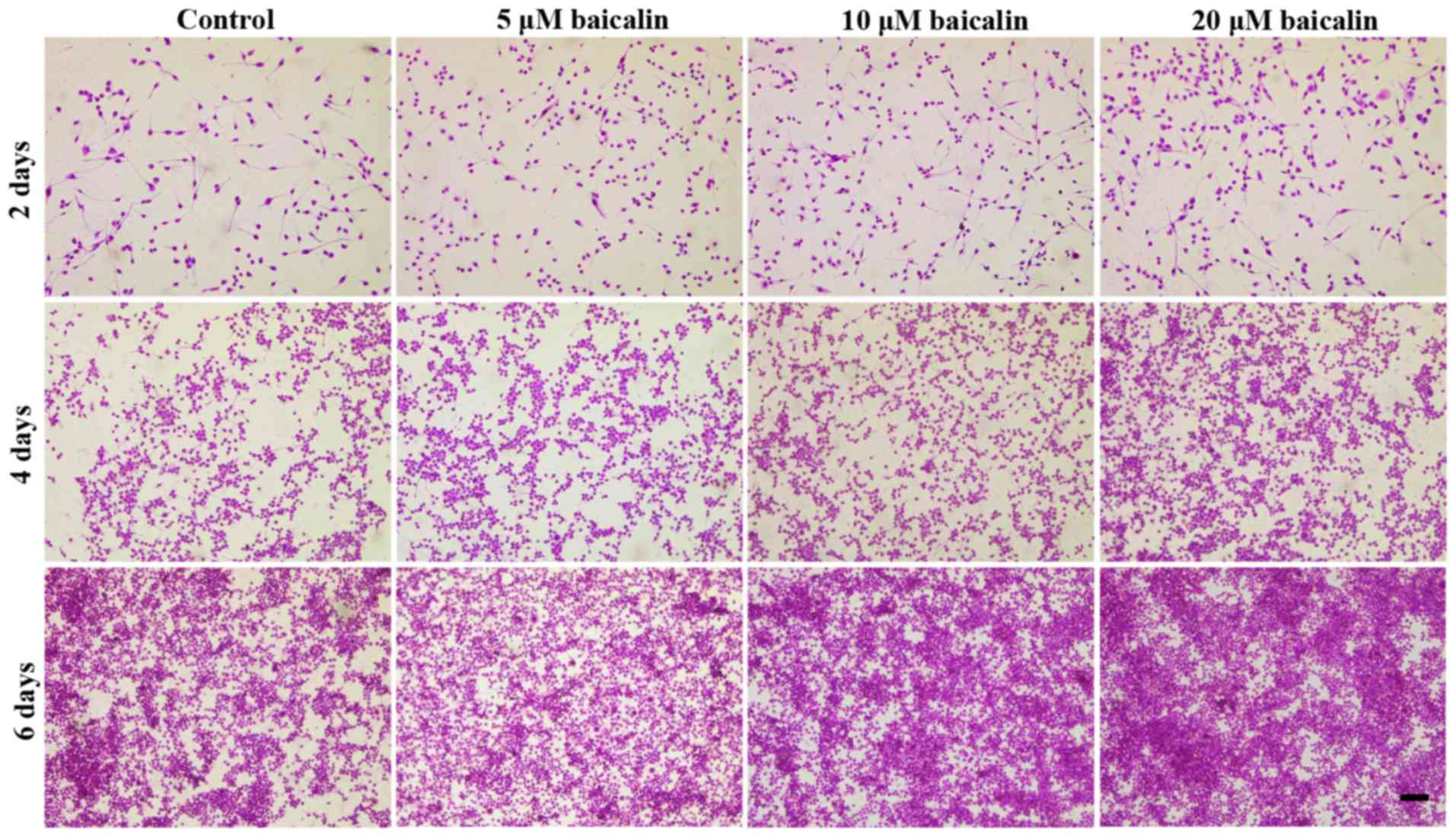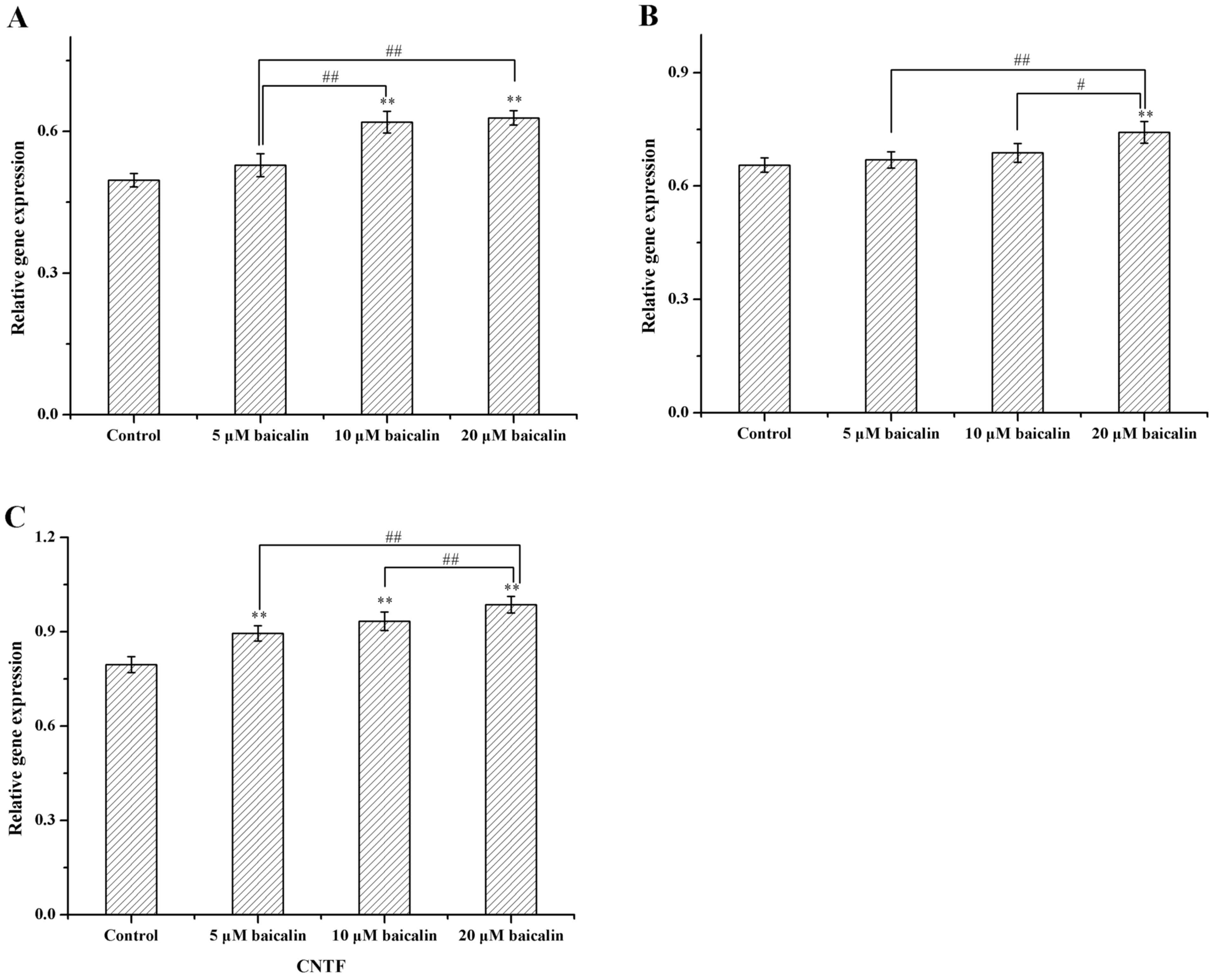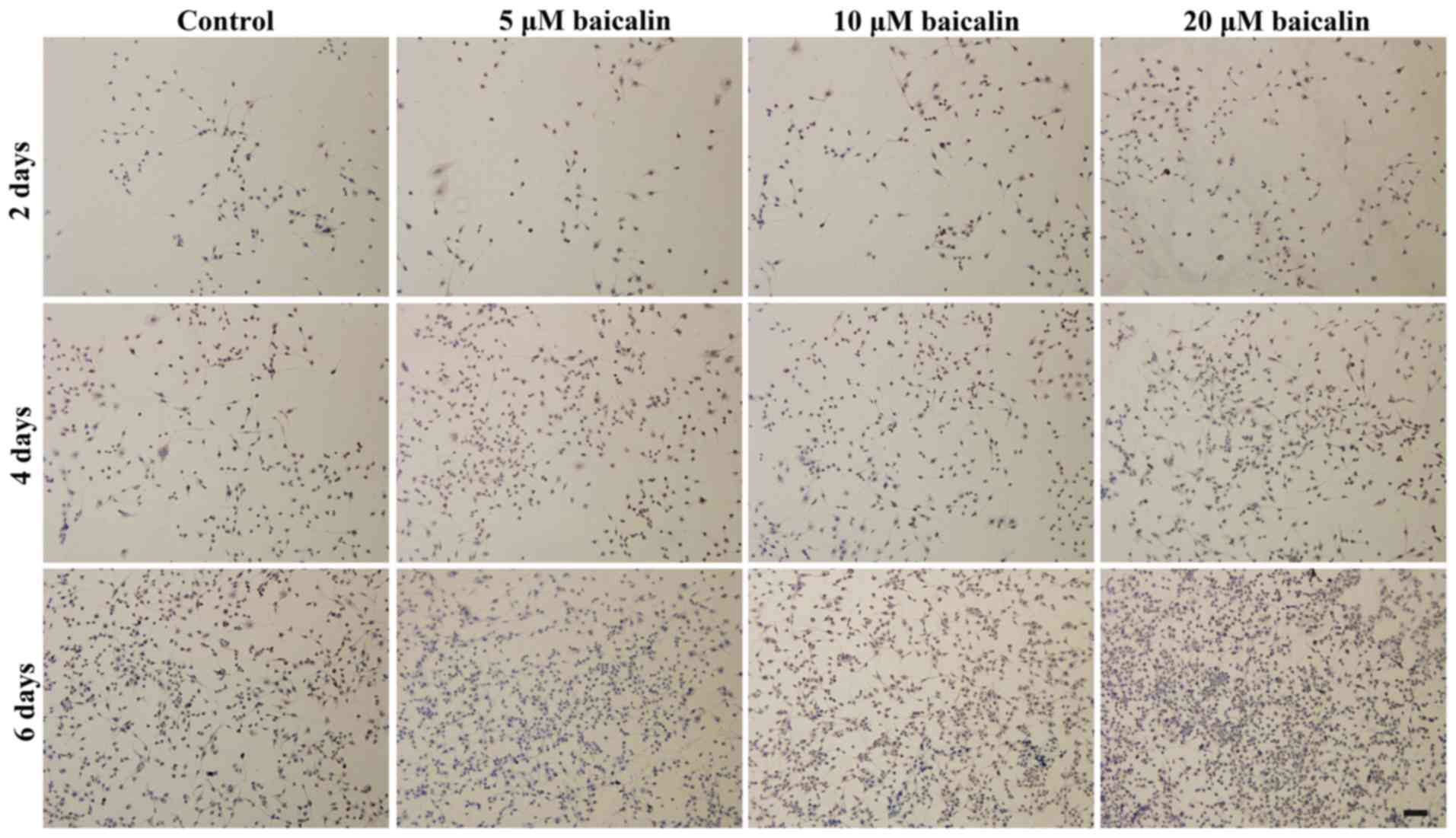|
1
|
Robinson LR: Traumatic injury to
peripheral nerves. Muscle Nerve. 23:863–873. 2000. View Article : Google Scholar : PubMed/NCBI
|
|
2
|
Evans GR: Peripheral nerve injury: A
review and approach to tissue engineered constructs. Anat Rec.
263:396–404. 2001. View
Article : Google Scholar : PubMed/NCBI
|
|
3
|
Griffin MF, Malahias M, Hindocha S and
Khan WS: Peripheral nerve injury: Principles for repair and
regeneration. Open Orthop J. 8:199–203. 2014. View Article : Google Scholar : PubMed/NCBI
|
|
4
|
Schmidt CE and Leach JB: Neural tissue
engineering: Strategies for repair and regeneration. Annu Rev
Biomed Eng. 5:293–347. 2003. View Article : Google Scholar : PubMed/NCBI
|
|
5
|
Moore AM, Kasukurthi R, Magill CK, Farhadi
HF, Borschel GH and Mackinnon SE: Limitations of conduits in
peripheral nerve repairs. Hand (N Y). 4:180–186. 2009. View Article : Google Scholar : PubMed/NCBI
|
|
6
|
Pfister BJ, Gordon T, Loverde JR, Kochar
AS, Mackinnon SE and Cullen DK: Biomedical engineering strategies
for peripheral nerve repair: Surgical applications, state of the
art, and future challenges. Crit Rev Biomed Eng. 39:81–124. 2011.
View Article : Google Scholar : PubMed/NCBI
|
|
7
|
Ide C, Tohyama K, Yokota R, Nitatori T and
Onodera S: Schwann cell basal lamina and nerve regeneration. Brain
Res. 288:61–75. 1983. View Article : Google Scholar : PubMed/NCBI
|
|
8
|
Mudo G, Persson H, Timmusk T, Funakoshi H,
Bindoni M and Belluardo N: Increased expression of trkB and trkC
messenger RNAs in the rat forebrain after focal mechanical injury.
Neuroscience. 57:901–912. 1993. View Article : Google Scholar : PubMed/NCBI
|
|
9
|
Toews AD, Barrett C and Morell P: Monocyte
chemoattractant protein 1 is responsible for macrophage recruitment
following injury to sciatic nerve. J Neurosci Res. 53:260–267.
1998. View Article : Google Scholar : PubMed/NCBI
|
|
10
|
Tofaris GK, Patterson PH, Jessen KR and
Mirsky R: Denervated Schwann cells attract macrophages by secretion
of leukemia inhibitory factor (LIF) and monocyte chemoattractant
protein-1 in a process regulated by interleukin-6 and LIF. J
Neurosci. 22:6696–6703. 2002.PubMed/NCBI
|
|
11
|
Keilhoff G, Fansa H, Schneider W and Wolf
G: In vivo predegeneration of peripheral nerves: An effective
technique to obtain activated Schwann cells for nerve conduits. J
Neurosci Methods. 89:17–24. 1999. View Article : Google Scholar : PubMed/NCBI
|
|
12
|
Terenghi G: Peripheral nerve regeneration
and neurotrophic factors. J Anat. 194:1–14. 1999. View Article : Google Scholar : PubMed/NCBI
|
|
13
|
Faroni A, Rothwell SW, Grolla AA, Terenghi
G, Magnaghi V and Verkhratsky A: Differentiation of adipose-derived
stem cells into Schwann cell phenotype induces expression of P2X
receptors that control cell death. Cell Death Dis. 4:e7432013.
View Article : Google Scholar : PubMed/NCBI
|
|
14
|
Temporin K, Tanaka H, Kuroda Y, Okada K,
Yachi K, Moritomo H, Murase T and Yoshikawa H: Interleukin-1 beta
promotes sensory nerve regeneration after sciatic nerve injury.
Neurosci Lett. 440:130–133. 2008. View Article : Google Scholar : PubMed/NCBI
|
|
15
|
Shen JL, Chen YS, Lin JY, Tien YC, Peng
WH, Kuo CH, Tzang BS, Wang HL, Tsai FJ, Chou MC, et al: Neuron
regeneration and proliferation effects of danshen and tanshinone
IIA. Evid Based Complement Alternat Med. 2011:3789072011.
View Article : Google Scholar : PubMed/NCBI
|
|
16
|
Park HL, Lee HS, Shin BC, Liu JP, Shang Q,
Yamashita H and Lim B: Traditional medicine in china, Korea, and
Japan: A brief introduction and comparison. Evid Based Complement
Alternat Med. 2012:4291032012. View Article : Google Scholar : PubMed/NCBI
|
|
17
|
Normile D: Asian medicine. The new face of
traditional Chinese medicine. Science. 299:188–190. 2003.
View Article : Google Scholar : PubMed/NCBI
|
|
18
|
Haranaka R, Hasegawa R, Nakagawa S,
Sakurai A, Satomi N and Haranaka K: Antitumor activity of
combination therapy with traditional Chinese medicine and OK432 or
MMC. J Biol Response Mod. 7:77–90. 1988.PubMed/NCBI
|
|
19
|
Du Z, Wang K, Tao Y, Chen L and Qiu F:
Purification of baicalin and wogonoside from Scutellaria
baicalensis extracts by macroporous resin adsorption
chromatography. J Chromatogr B Analyt Technol Biomed Life Sci.
908:143–149. 2012. View Article : Google Scholar : PubMed/NCBI
|
|
20
|
Kim AR, Kim SN, Jung IK, Kim HH, Park YH
and Park WS: The inhibitory effect of Scutellaria baicalensis
extract and its active compound, baicalin, on the translocation of
the androgen receptor with implications for preventing androgenetic
alopecia. Planta Med. 80:153–158. 2014. View Article : Google Scholar : PubMed/NCBI
|
|
21
|
Miao G, Zhao H, Guo K, Cheng J, Zhang S,
Zhang X, Cai Z, Miao H and Shang Y: Mechanisms underlying
attenuation of apoptosis of cortical neurons in the hypoxic brain
by flavonoids from the stems and leaves of Scutellaria baicalensis
Georgi. Neural Regen Res. 9:1592–1598. 2014. View Article : Google Scholar : PubMed/NCBI
|
|
22
|
Li BQ, Fu T, Gong WH, Dunlop N, Kung H,
Yan Y, Kang J and Wang JM: The flavonoid baicalin exhibits
anti-inflammatory activity by binding to chemokines.
Immunopharmacology. 49:295–306. 2000. View Article : Google Scholar : PubMed/NCBI
|
|
23
|
Hwang JM, Wang CJ, Chou FP, Tseng TH,
Hsieh YS, Hsu JD and Chu CY: Protective effect of baicalin on
tert-butyl hydroperoxide-induced rat hepatotoxicity. Arch Toxicol.
79:102–109. 2005. View Article : Google Scholar : PubMed/NCBI
|
|
24
|
Jung SH, Kang KD, Ji D, Fawcett RJ, Safa
R, Kamalden TA and Osborne NN: The flavonoid baicalin counteracts
ischemic and oxidative insults to retinal cells and lipid
peroxidation to brain membranes. Neurochem Int. 53:325–337. 2008.
View Article : Google Scholar : PubMed/NCBI
|
|
25
|
Tu XK, Yang WZ, Shi SS, Wang CH and Chen
CM: Neuroprotective effect of baicalin in a rat model of permanent
focal cerebral ischemia. Neurochem Res. 34:1626–1634. 2009.
View Article : Google Scholar : PubMed/NCBI
|
|
26
|
Li Y, Zhuang P, Shen B, Zhang Y and Shen
J: Baicalin promotes neuronal differentiation of neural
stem/progenitor cells through modulating p-stat3 and bHLH family
protein expression. Brain Res. 1429:36–42. 2012. View Article : Google Scholar : PubMed/NCBI
|
|
27
|
Li M, Tsang KS, Choi ST, Li K, Shaw PC and
Lau KF: Neuronal differentiation of C17.2 neural stem cells induced
by a natural flavonoid, baicalin. Chembiochem. 12:449–456. 2011.
View Article : Google Scholar : PubMed/NCBI
|
|
28
|
Livak KJ and Schmittgen TD: Analysis of
relative gene expression data using real-time quantitative PCR and
the 2(−Delta Delta C(T)) method. Methods. 25:402–408. 2001.
View Article : Google Scholar : PubMed/NCBI
|
|
29
|
Heo HJ, Kim DO, Choi SJ, Shin DH and Lee
CY: Potent Inhibitory effect of flavonoids in Scutellaria
baicalensis on amyloid beta protein-induced neurotoxicity. J Agric
Food Chem. 52:4128–4132. 2004. View Article : Google Scholar : PubMed/NCBI
|
|
30
|
Chang YM, Kuo WH, Lai TY, Shih YT, Tsai
FJ, Tsai CH, Shu WT, Chen YY, Chen YS, Kuo WW and Huang CY: RSC96
Schwann cell proliferation and survival induced by dilong through
PI3K/Akt signaling mediated by IGF-I. Evid Based Complement
Alternat Med. 2011:2161482011. View Article : Google Scholar : PubMed/NCBI
|
|
31
|
Liu Z, Jin YQ, Chen L, Wang Y, Yang X,
Cheng J, Wu W, Qi Z and Shen Z: Specific marker expression and cell
state of Schwann cells during culture in vitro. PLoS One.
10:e01232782015. View Article : Google Scholar : PubMed/NCBI
|
|
32
|
Barbisan LF, Miyamoto M, Scolastici C,
Salvadori DM, Ribeiro LR, Eira AF and de Camargo JL: Influence of
aqueous extract of Agaricus blazei on rat liver toxicity induced by
different doses of diethylnitrosamine. J Ethnopharmacol. 83:25–32.
2002. View Article : Google Scholar : PubMed/NCBI
|
|
33
|
Burnett BP, Silva S, Mesches MH, Wilson S
and Jia Q: Safety evaluation of a combination, defined extract of
Scutellaria baicalensisAcacia catechu. J Food Biochem. 31:797–825.
2007. View Article : Google Scholar
|
|
34
|
Kim YO, Leem K, Park J, Lee P, Ahn DK, Lee
BC, Park HK, Suk K, Kim SY and Kim H: Cytoprotective effect of
Scutellaria baicalensis in CA1 hippocampal neurons of rats after
global cerebral ischemia. J Ethnopharmacol. 77:183–188. 2001.
View Article : Google Scholar : PubMed/NCBI
|
|
35
|
Cao Y, Li G, Wang YF, Fan ZK, Yu DS, Wang
ZD and Bi YL: Neuroprotective effect of baicalin on compression
spinal cord injury in rats. Brain Res. 1357:115–123. 2010.
View Article : Google Scholar : PubMed/NCBI
|
|
36
|
Aloe L, Rocco ML, Bianchi P and Manni L:
Nerve growth factor: From the early discoveries to the potential
clinical use. J Transl Med. 10:2392012. View Article : Google Scholar : PubMed/NCBI
|
|
37
|
Bothwell M: NGF, BDNF, NT3 and NT4. Handb
Exp Pharmacol. 220:3–15. 2014. View Article : Google Scholar : PubMed/NCBI
|
|
38
|
Klimaschewski L, Hausott B and Angelov DN:
The pros and cons of growth factors and cytokines in peripheral
axon regeneration. Int Rev Neurobiol. 108:137–171. 2013. View Article : Google Scholar : PubMed/NCBI
|
|
39
|
Gordon T: The role of neurotrophic factors
in nerve regeneration. Neurosurg Focus. 26:E32009. View Article : Google Scholar : PubMed/NCBI
|
|
40
|
Stankoff B, Aigrot MS, Noël F, Wattilliaux
A, Zalc B and Lubetzki C: Ciliary neurotrophic factor (CNTF)
enhances myelin formation: A novel role for CNTF and CNTF-related
molecules. J Neurosci. 22:9221–9227. 2002.PubMed/NCBI
|
|
41
|
Vernerey J, Macchi M, Magalon K, Cayre M
and Durbec P: Ciliary neurotrophic factor controls progenitor
migration during remyelination in the adult rodent brain. J
Neurosci. 33:3240–3250. 2013. View Article : Google Scholar : PubMed/NCBI
|
|
42
|
Wilhelm JC, Xu M, Cucoranu D, Chmielewski
S, Holmes T, Lau KS, Bassell GJ and English AW: Cooperative roles
of BDNF expression in neurons and Schwann cells are modulated by
exercise to facilitate nerve regeneration. J Neurosci.
32:5002–5009. 2012. View Article : Google Scholar : PubMed/NCBI
|
|
43
|
Xiao J, Hughes RA, Lim JY, Wong AW,
Ivanusic JJ, Ferner AH, Kilpatrick TJ and Murray SS: A small
peptide mimetic of brain-derived neurotrophic factor promotes
peripheral myelination. J Neurochem. 125:386–398. 2013. View Article : Google Scholar : PubMed/NCBI
|
|
44
|
Tannemaat MR, Eggers R, Hendriks WT, De
Ruiter GC, van Heerikhuize JJ, Pool CW, Malessy MJ, Boer GJ and
Verhaagen J: Differential effects of lentiviral vector-mediated
overexpression of nerve growth factor and glial cell line-derived
neurotrophic factor on regenerating sensory and motor axons in the
transected peripheral nerve. Eur J Neurosci. 28:1467–1479. 2008.
View Article : Google Scholar : PubMed/NCBI
|
|
45
|
Anitha M, Gondha C, Sutliff R, Parsadanian
A, Mwangi S, Sitaraman SV and Srinivasan S: GDNF rescues
hyperglycemia-induced diabetic enteric neuropathy through
activation of the PI3K/Akt pathway. J Clin Invest. 116:344–356.
2006. View Article : Google Scholar : PubMed/NCBI
|
|
46
|
Hoyng SA, De Winter F, Gnavi S, De Boer R,
Boon LI, Korvers LM, Tannemaat MR, Malessy MJ and Verhaagen J: A
comparative morphological, electrophysiological and functional
analysis of axon regeneration through peripheral nerve autografts
genetically modified to overexpress BDNF, CNTF, GDNF, NGF, NT3 or
VEGF. Exp Neurol. 261:578–593. 2014. View Article : Google Scholar : PubMed/NCBI
|
|
47
|
Donato R, Cannon BR, Sorci G, Riuzzi F,
Hsu K, Weber DJ and Geczy CL: Functions of S100 proteins. Curr Mol
Med. 13:24–57. 2013. View Article : Google Scholar : PubMed/NCBI
|
|
48
|
Donato R: Intracellular and extracellular
roles of S100 proteins. Microsc Res Tech. 60:540–551. 2003.
View Article : Google Scholar : PubMed/NCBI
|
|
49
|
Novitskaya V, Grigorian M, Kriajevska M,
Tarabykina S, Bronstein I, Berezin V, Bock E and Lukanidin E:
Oligomeric forms of the metastasis-related Mts1 (S100A4) protein
stimulate neuronal differentiation in cultures of rat hippocampal
neurons. J Biol Chem. 275:41278–41286. 2000. View Article : Google Scholar : PubMed/NCBI
|















